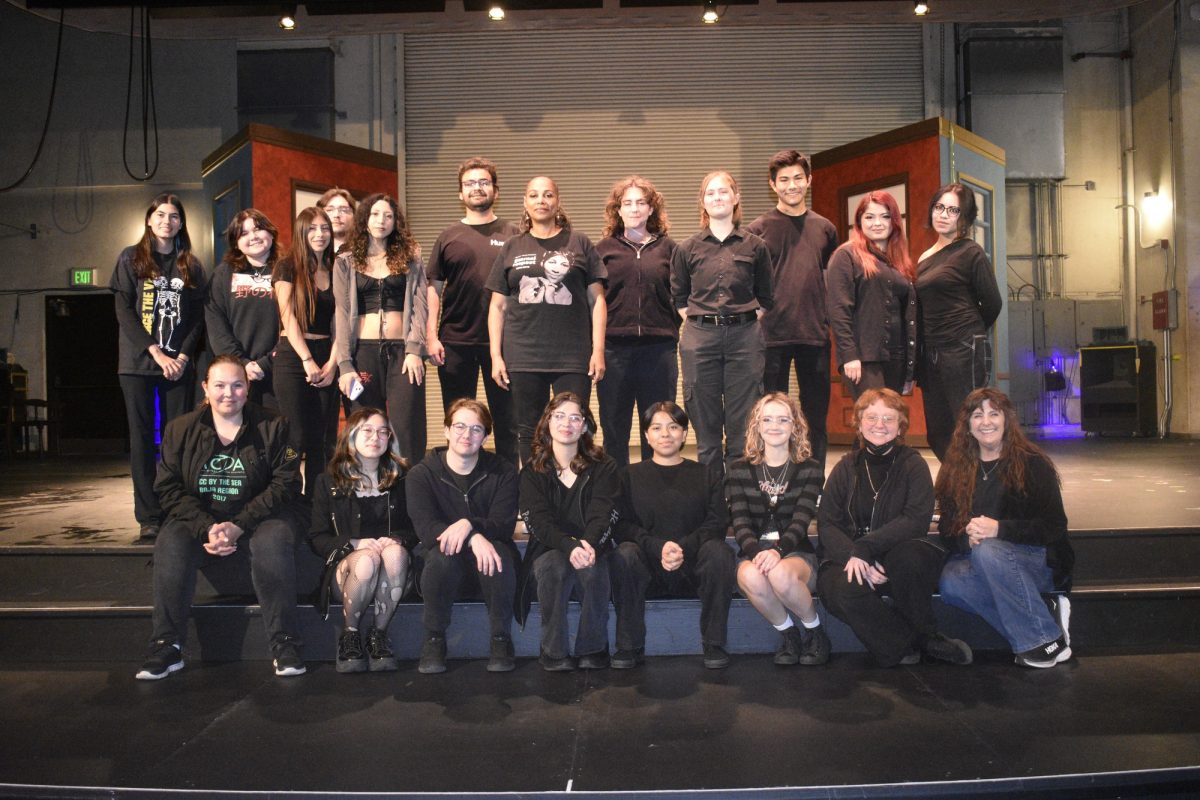With her anxiety on the rise, her palms sweaty and grabbing on for dear life, it seems that Phoebe Bassett, 40-year-old nursing major, is on a roller coaster ride.
However, she’s just waiting for her flight to take off.
“When I was about 9 or 10, I got on a flight to go visit some relatives,” Bassett said. “The engine of the airplane cut off and the plane dropped about one thousand feet before the engines came back on.”
This traumatized Bassett severely.
From that moment on, she would never be able to fly in an airplane again without having her anxiety rise.
The fear of flying, sometimes referred to as aviophobia, is caused by believing the plane will be in an accident or is going to crash with the knowledge that the person is confided to a very small space.
This common fear can also be due to traumatic experience early in life, or by seeing a movie that drastically changed one’s view of flying.
“I don’t like flying anymore because it makes me nervous and sweaty. I start shaking before I even get on the plane,” Bassett said.
“The thing is, I worry so much about the actual act of flying that if something else bad happened, like terrorism, it wouldn’t be such a shock to me,” she said.
Psychology professor Edward McCrary said that the cause of anxiety is the reason people have a fear of flying.
“The fear of flying is due to an anxiety disorder; a phobic reaction is a kind of anxiety that is connected to some kind of person, place or thing,” McCrary said.
“In this case, it’s a fear of flying and it just means they get a lot of physical symptoms when they fly,” he said.
“These symptoms make some people think that they have a physical disorder,” McCrary said.
These symptoms include a rapid heartbeat, sweaty palms, quickened breathing, muscle tension and changes in blood pressure.
“Sometimes it’s a matter of loss of control when they get on an airplane,” McCrary said.
The terrorist attacks, as well as a recent unsuccessful emergency landing by Jet Blue Airlines at LAX, do not help matters.
“The recent terrorist attacks are not a major cause, but it does add to the anxiety,” McCrary said.
Rahil Aftab, 21, electronics major, has a father who is head of his own travel agency.
“I do not have a fear of flying and neither should other people because flying is one of the safest methods of transportation around,” Aftab said.
According to a study by the U.S. National Safety Council, it is 22 times safer to fly in a commercial airplane than to ride in a car.
After the terrorist attacks, the Aftab business went down for a year; however, currently business is back to normal.
“My dad’s business was only affected a little bit by (the terrorist attacks),” Aftab said.
Aftab has been flying since he was young, when he first immigrated to the U.S. from India.
“I remember getting on the plane and I was really excited just to get on because it’s exciting to see new things,” Aftab said.
“I’ve been on a plane so many times, that I don’t fear flying,” he said. “Whenever there is turbulence, it gives me a rush.”
But sometimes, unfortunately for aviophobes, flying is the only way to travel. They still manage to get to their destination; however, it takes a lot of work.
Luckily, solutions are available.
There are prescription medications available that help the body to calm down.
There are a number of relaxation techniques that also alleviate symptoms.
“Any abnormal psychology book can give you details about how the relaxation techniques work,” McCrary said.
“While it sounds like simple solutions, these things actually work really well,” McCrary said.
For some, however, taking shorter flights is all one needs to achieve some peace of mind.
Bassett, for example, endured a 45-minute flight to Las Vegas with her mother recently.
“Any flight I get on isn’t so great, but this one was not that bad because this plane flight was so short,” Bassett said.







